Ever wandered through a tech expo and been awestruck by those shiny gadgets? Well, some of the quirkiest creations are not just show-stoppers—they’re the kind that might make you go, ‘Wait, what now?’ I’m talking about AI cheating tools, the kind of stuff that’s lighting up debates faster than your old PC runs out of battery bingeing on Cats Vs Dogs videos. These tools are slipping into schools and boardrooms, promising shortcuts like nobody’s business. Oh, and there’s Cluely. If you haven’t heard of them yet, they’re smack dab in the middle of this ethical quagmire, generating more chatter than your favorite barista who loves to spill the beans.
The Rise of AI Cheating Tools
So, picture this: software that sneaks around, helping folks ace exams or crush job interviews with barely a sweat. Yup, that’s the crux of AI cheating tools. Now, Cluely is one name getting tossed around a lot. It’s kinda like a digital Houdini, making challenges disappear like… well, like a magic trick you can’t quite trust. People are flocking to these tools as if they’re the new holy grail of “get smart quick” schemes.
Why the rush? Easy – fewer headaches, more kickbacks. But here’s the thing: educators? Man, they’re going nuts over this. It’s a big ‘is this progress or pandemonium?’ moment. Get this – a surprising study shows over 60% of college students own up to using AI to sweeten their assignments (source: crediblejournal.com). Wild, huh?
Cluely Startup: Innovation or Controversy?
Now, about Cluely. Founded by Columbia University’s Roy Lee and Neel Shanmugam, they’re not just making waves—they’re causing full-on tsunamis in the tech sea. Their tool’s kinda like a turbocharged calculator but, where’s the line? The fuss about them is practically a TV drama waiting to happen, showing tech doing its dance with ethics, just like in those sci-fi flickers that get everyone talking.
Divisive? You bet! Their marketing feels like it’s straight out of a space opera, pulling people into either fanboying or airing objections louder than a plane on takeoff. Here’s the kicker: some say Cluely is polarizing tech norms faster than prank videos go viral.
Interview Coder and its Evolution
Meet Interview Coder, Cluely’s sidekick. Initially, it was your basic prep tool, but now? Now it’s practically Robin to the job interview’s Batman. Toss that study guide out the window; Interview Coder’s got real-time prompts to save the day.
But let’s keep it real – is this fair play? With similar platforms popping up, traditional interviews are starting to look like relics from the Stone Age. Companies are in a twist over this—do they jump on the tech bandwagon or stick with tried-and-true recruitment practices? Change is definitely in the air, blending tradition with a dash of AI magic.
Columbia University Incident: A Turning Point
Now, about the good folks back at Columbia University. Their reaction was swift and stern; Columbia hit back at Lee and Shanmugam harder than a sledgehammer on a piñata, emphasizing ethics over gadgetry. This wasn’t just another blip on the controversy radar.
It’s critical stuff. Academic institutions are walking a fine line— hanging on to cutting-edge tech while keeping ethical standards squarely in view. What they do here could ripple out across academic regulations and beyond. It seems there’s a balance to strike, and it’s got policymakers doing a tightrope walk.
Ethics and the Future of AI in Recruitment
With great innovation comes… well, a ton of ethical landmines. The AI hiring game is like a fence-sitting act between helping hands and flat-out advantages. Imagine rolling out AI in recruitment—like driverless cars but … with your career.
Looking ahead, shaping ethical guidelines is non-negotiable, like the house rules you wish you had. Nobody’s sign-up sheet includes robots running their HR. It’s about aligning AI with fair play, not rewriting the rules out of left field. Dive into this mind-boggling article on AI Ethics in Recruitment for more on this topic.
Conclusion: Navigating the Ethical Maze
To wrap this up, AI concoctions like Cluely may be rewriting texts and interview lines, but they’re also shaking ethical grounds. We’re still penning the pages of AI’s journey. Steering innovation alongside integrity is crucial, like juggling while riding a unicycle. As the tech paradox unfolds, let’s keep asking the right questions, pushing boundaries, and—hopefully— land ethical breakthroughs that amplify not only AI’s promise but also its duty.


